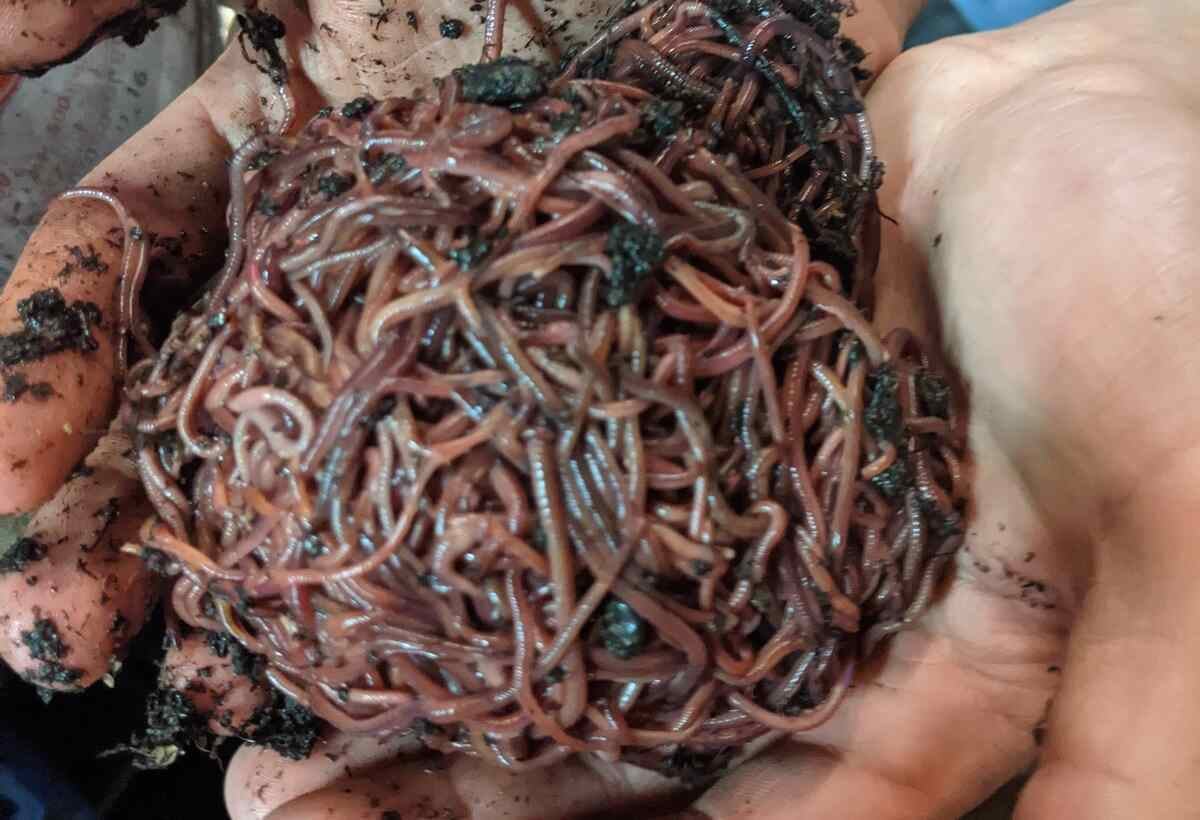Red Wiggler Worms Demystified: Unlocking the Tricks of Vermiculture for Greener Living and Nutrient-Rich Soil
In the world of lasting methods for enriching dirt top quality and advertising eco-conscious living, red wiggler worms play an essential yet usually neglected duty. These simple animals have the remarkable capacity to change natural waste into nutrient-rich spreadings that function as a potent natural plant food. By delving into the globe of vermiculture, one can uncover a huge selection of advantages that extend much beyond standard composting techniques. Comprehending the complexities of taking care of these worms, enhancing their setting, and utilizing their spreadings can lead to a greener lifestyle and much healthier dirt for plants to thrive.
The Duty of Red Wiggler Worms
Red Wiggler worms play an essential duty in composting systems by effectively breaking down raw material into nutrient-rich spreadings. These voracious eaters eat a variety of natural products, such as kitchen area scraps, backyard waste, and paper products. As they feed, the worms' digestive procedures damage down the raw material into a penalty, dark, and nutrient-dense product recognized as worm castings or vermicompost.
The spreadings created by Red Wiggler worms are very useful for dirt wellness and plant development. They are abundant in crucial nutrients like phosphorus, nitrogen, and potassium, which are important for supporting healthy and balanced plant growth. Additionally, worm castings include helpful microbes and enzymes that assist improve soil structure, rise water retention, and boost nutrient uptake by plants.
Advantages of Vermicomposting

It improves soil framework, improves dirt oygenation, and increases dirt moisture retention. Vermicompost likewise enhances the dirt with essential nutrients like potassium, phosphorus, and nitrogen, promoting plant development and general soil fertility.
In addition, vermicomposting assistances lasting gardening methods by supplying a chemical-free and all-natural choice to synthetic plant foods. Red Wiggler Worms. This ecologically friendly approach not just enhances the soil however likewise assists lower dependence on harmful chemicals, advertising a greener and a lot more lasting method of horticulture
Establishing Up a Worm Container
When establishing a worm bin for vermicomposting, correct setup is critical to ensure the success of the composting procedure. The primary step in setting up a worm bin is selecting a suitable container. This can be a plastic bin or wooden box that gives enough area for the worms to walk around and has proper drainage openings to stop waterlogging. Next off, a bedding material such as shredded paper, cardboard, or coconut coir ought to be contributed to the container. This bedding provides a comfy environment for the worms and aids preserve moisture levels.
After including the bedding, present the red wiggler worms to the bin. The worms need to after that be offered with food scraps such as fruit and veggie peels, coffee premises, and eggshells.
Consistently monitor the moisture degrees and temperature in the worm bin to guarantee optimal conditions for the worms. With correct arrangement and upkeep, the worm bin will successfully transform organic waste into nutrient-rich compost for your plants and yard.
Harvesting Worm Castings
To effectively gather nutrient-rich worm spreadings from your vermicomposting system, a methodical harvesting approach is vital. When it comes time to harvest the worm castings, there are a few key actions to follow to make certain a successful process.

Troubleshooting Common Issues
Recognizing and attending to usual difficulties that might occur throughout the vermicomposting procedure is critical for preserving a productive and healthy and balanced worm bin. Adding excess food scraps can lead to a buildup of dampness and acidity in the worm container, potentially damaging the worms. Another problem is undesirable smells emanating from the worm bin.
In addition, if the worm population is decreasing or the worms appear harmful, it could be as a result of ecological stressors such as severe temperature levels or pH degrees. Checking these elements and making essential modifications is essential for the wellness of the worms. By repairing these usual issues immediately, vermicomposters can ensure a successful and smooth vermicomposting process while maintaining a prospering worm populace.

Verdict
Finally, red wiggler worms play a critical function in vermiculture by damaging down organic matter into nutrient-rich soil. The advantages of vermiculture include greener living and improved dirt top quality. Establishing up a worm container is vital for effective vermiculture, and gathering worm spreadings supplies valuable compost for gardening. By understanding and fixing typical concerns, individuals can open the secrets of vermiculture for lasting living and healthier dirt.
As they feed, the worms' digestive system processes damage down the organic matter into a fine, dark, and nutrient-dense product understood as worm castings or vermicompost.
The castings produced by Red Wiggler worms are highly helpful for soil health and wellness and plant growth. Including excess food scraps can lead to an accumulation of dampness and acidity in the worm bin, possibly damaging the worms.In addition, if the worm population is decreasing or the worms show up unhealthy, it could be due to ecological stress factors such as extreme temperatures try this out or pH levels. Establishing up this content a worm container is necessary for effective vermiculture, and harvesting worm castings offers valuable compost for gardening.